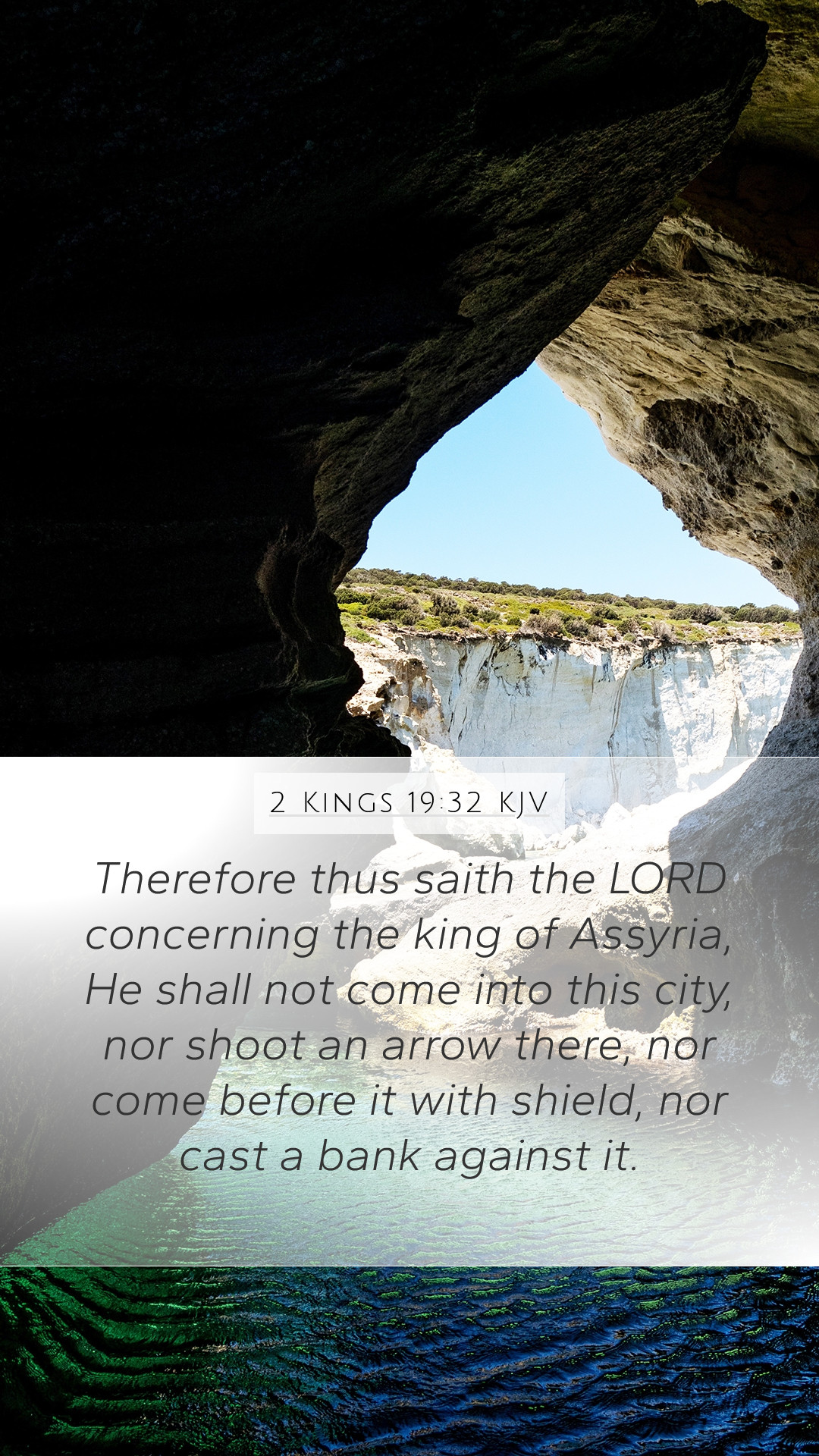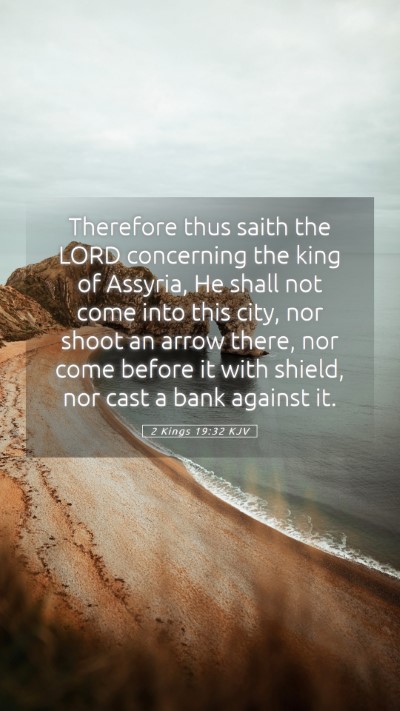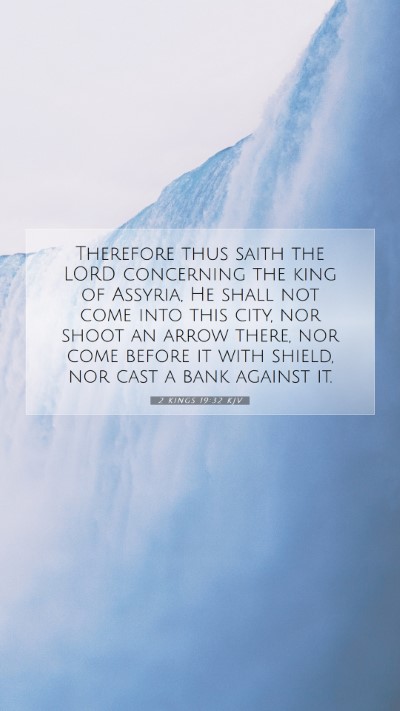Understanding 2 Kings 19:32: A Comprehensive Bible Verse Commentary
Bible Verse: 2 Kings 19:32
“Therefore thus says the Lord concerning the king of Assyria, ‘He shall not come into this city, nor shoot an arrow there, nor come before it with shield, nor build a siege mound against it.’”
Overview of 2 Kings 19:32
This verse is a pivotal message delivered through the prophet Isaiah, highlighting God's direct intervention in the Assyrian siege of Jerusalem. The Assyrian king, Sennacherib, had boasted of his conquests and threatened Jerusalem, but through Isaiah, the Lord assures His people of protection and victory.
Exegetical Insights
Combining perspectives from renowned public domain commentaries—Matthew Henry, Albert Barnes, and Adam Clarke, we can glean several layers of meaning contained within this verse.
-
Matthew Henry's Commentary
Henry emphasizes God's sovereignty over nations. He asserts that despite the threatening power of Assyria, the Lord’s decree protects Jerusalem. Henry illustrates that God's promise to defend the city reveals His faithfulness and power to save His people from imminent danger.
-
Albert Barnes' Commentary
Barnes discusses the historical context of the Assyrian threat. He remarks on the psychological impact of this divine assurance on the people of Judah, contrasting the might of Assyria with the omnipotence of God. Barnes highlights how the phrase “He shall not come” underscores the futility of human threats against divine will.
-
Adam Clarke's Commentary
Clarke provides an analytical perspective, delving into the terms used in the verse. He notes the absence of typical siege warfare and its significance—indicating a supernatural intervention whereby God Himself becomes the shield and protector for His people. Clarke encourages a reflection on the historical fulfillment of this promise, showing trust in God's fidelity.
Theological Implications
This verse serves as a powerful reminder of God’s protective character and His ability to defy human expectations. It highlights themes relevant to biblical exegesis and scripture analysis, including:
- Divine Protection: God stands as a bulwark for those who seek refuge in Him.
- Faith in Adversity: The promise gave the people of Judah hope amid insurmountable odds.
- Covenant Faithfulness: This assures believers of God's unwavering faithfulness to His covenants.
Application for Today
Individuals studying the Bible can draw valuable lessons from 2 Kings 19:32. In prayer and meditating over diverse Bible study lessons, it reinforces the understanding that no situation is beyond God's control. Believers facing personal challenges or uncertainties can find encouragement in God’s previous acts of deliverance.
Related Bible Cross References
- Isaiah 31:5: Highlights God's protection over Jerusalem, paralleling themes of divine salvation.
- 2 Chronicles 32:21: Provides an account of God's intervention against Sennacherib.
- Psalm 91:1-3: Reflects on the safety and refuge found in God, echoing the protective assurance found in 2 Kings 19:32.
Conclusion
In conclusion, 2 Kings 19:32 is not just a historical statement; it is a profound verse full of hope and assurance for believers. Understanding this verse enhances one’s comprehension of biblical narratives and divine attributes, affirming that God's protective hand is a consistently encouraging aspect of faith.


